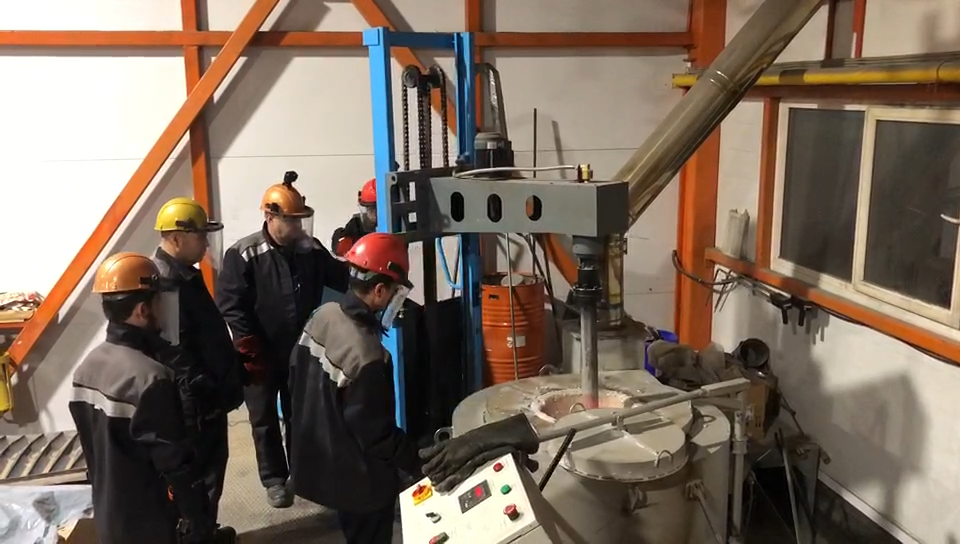
Aug . 13, 2024 16:21 Back to list
Aluminum Recycling Plant Turning Waste into Resources
In an era marked by escalating environmental concerns and the pressing need for sustainable practices, aluminum recycling has emerged as a beacon of hope. Aluminum recycling plants play a pivotal role in this ecosystem, effectively transforming waste into valuable resources while significantly reducing the carbon footprint associated with primary aluminum production.
Aluminum is one of the most versatile and widely used metals in the world. It is lightweight, resistant to corrosion, and easily molded, making it an ideal material for an array of applications, from packaging and transportation to construction and consumer goods. However, the production of primary aluminum is energy-intensive, consuming vast amounts of electricity and contributing to substantial greenhouse gas emissions. In contrast, recycling aluminum requires only about 5% of the energy necessary to produce newly mined aluminum, making it a highly efficient and eco-friendly alternative.
An aluminum recycling plant operates by collecting scrap aluminum from various sources, including post-consumer products such as beverage cans, car parts, and industrial waste
. The recycling process typically involves several stages sorting, shredding, melting, and refining.Sorting is the crucial first step, where different types of aluminum are separated from other materials, including plastics and metals. This is often done manually or with sophisticated automated systems that can efficiently identify and sort aluminum based on its composition.

Following sorting, the aluminum is shredded into smaller pieces, making it easier to melt and process. This is followed by the melting phase, where scrap aluminum is heated in large furnaces. The temperature usually reaches around 660 degrees Celsius (1,220 degrees Fahrenheit), at which point the aluminum transforms from solid to liquid. It's important to note that during melting, most impurities, such as coatings and other metals, are burned off or removed, ensuring the quality of the recycled aluminum.
After melting, the aluminum undergoes refining to achieve the desired purity for reuse. This involves processes such as degassing to remove hydrogen and other gases, as well as further filtration to eliminate remaining impurities. Once refined, the molten aluminum is poured into molds to create ingots, which can be transported to manufacturers for repurposing into new products.
One of the most significant benefits of aluminum recycling plants is their impact on natural resource conservation. By recycling aluminum, we can significantly reduce the need for mining, preserving the earth's resources and minimizing ecological disruption. Furthermore, recycling prevents vast quantities of aluminum waste from ending up in landfills, contributing to a greener planet and promoting a circular economy.
Moreover, the economic benefits of aluminum recycling are notable. Recycling plants create jobs and stimulate local economies, often providing employment in various sectors, from operations to logistics. The demand for recycled aluminum is on the rise, driven by growing awareness of environmental issues and the need for sustainable materials in manufacturing processes.
In conclusion, aluminum recycling plants are vital in addressing the dual challenges of resource depletion and environmental degradation. By converting scrap aluminum into new products, these facilities not only conserve energy and reduce emissions but also promote sustainable practices that benefit the economy and the planet. As we move towards a more sustainable future, the role of aluminum recycling and its contribution to a circular economy will be increasingly important, paving the way for a healthier and more sustainable world.
Latest news
Trusted Double Shaft Shredder Supplier | Durable Industrial & Recycling Solutions
NewsNov.24,2025
Double Shaft Shredder Price Explained: Global Trends, Benefits & Vendor Comparisons
NewsNov.24,2025
Expert Insights into Double Shaft Shredder Factory: Boosting Global Recycling Efficiency
NewsNov.23,2025
Leading Double Shaft Shredder Suppliers for Industrial Recycling and Waste Management
NewsNov.23,2025
Leading Double Shaft Shredder Manufacturers | Durable & Sustainable Industrial Shredders
NewsNov.23,2025
Understanding Double Shaft Shredder Machine Price: Buyers’ Guide & Global Insights
NewsNov.22,2025